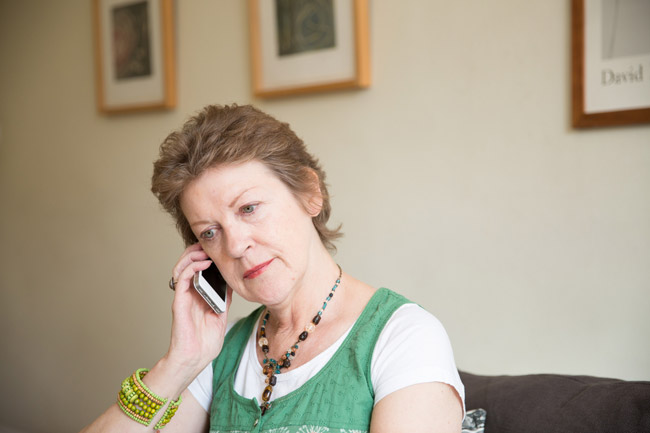
A series of simple telephone calls can make a profound difference in helping women to meet their treatment goals for breast cancer, according to a randomized trial of women who are also obese, published online today in Journal of Clinical Oncology by Dr. Pamela Goodwin of Mount Sinai Hospital and the Lunenfeld-Tanenbaum Research Institute.
Women who received advice about weight loss from a trained lifestyle coach by telephone achieved weight loss that was still evident after two years, lowering their risk of breast cancer recurrence.
It’s already known that women who are obese have about a 25-30% greater risk of death compared to women who are not obese, says Dr. Goodwin. Excess fat tissue in the body stimulates inflammation, and is associated with alterations in hormones such as insulin, leptin, and estradiol, which play a part in cancer growth and recurrence. “That’s why breast cancer treatment for women who are overweight often includes weight loss as an important treatment goal,” she adds. Dr. Goodwin is the Director of Mount Sinai’s Marvelle Koffler Breast Centre, an investigator at theLunenfeld-Tanenbaum research Institute at Mount Sinai Hospital, and a Professor in the Department of Medicine at University of Toronto.
Low-cost intervention
“This study demonstrates a powerful result for lifestyle change that is notoriously challenging,” Dr. Goodwin explains. “As much as we look to the technology and medical side of treatment, it’s just as vital to understand the power of low-cost interventions that can make difference in breast cancer survival and quality of life,” she adds.
The randomized trial of 338 women in Canada and the US compared results in women who received advice about weight loss from a lifestyle coach on the telephone to results in women who received a mailing. All the study participants were post-menopausal and received an aromatase inhibitor (estrogen blocker). The results in terms of sustained weight loss after two years were comparable to that achieved by women who had an in-person consultation about weight loss.
“For women who face the compounded challenge of breast cancer and obesity, we can’t ignore the importance of low-cost supports to that may contribute to improved survival,” says Dr. Goodwin. Large-scale randomized trials are being planned to investigate effects of a telephone-based weight loss intervention on breast cancer outcomes.
The paper is “A randomized trial of a telephone-based weight loss intervention in postmenopausal women with breast cancer receiving letrozole: The LISA Trial,” with coauthors across Canada and at Harvard Medical School. Funders include Lunenfeld-Tanenbaum Research Institute and Mount Sinai Hospital Foundation.
The study done by Lunenfeld-Tanenbaum Research Institute.